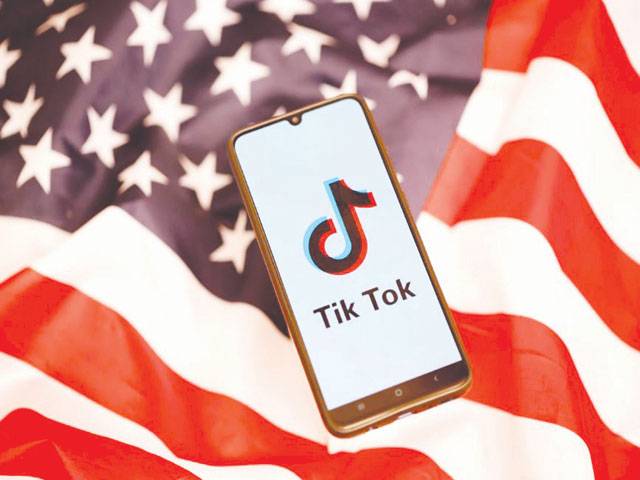WASHINGTON - Earlier this week the United States Navy banned the social media app TikTok from government-issued mobile devices, saying the popular short video app represented a “cybersecurity threat.” A bulletin issued by the Navy on Tuesday showed up on a Facebook page serving military members, saying users of government issued mobile devices who had TikTok and did not remove the app would be blocked from the Navy Marine Corps Intranet. The Navy would not describe in detail what dangers the app presents, but Pentagon spokesman Lieutenant Colonel Uriah Orland said in a statement the order was part of an effort to “address existing and emerging threats”. TikTok did not return a request for comment. TikTok is hugely popular with U.S. teenagers, but has come under scrutiny from U.S. regulators and lawmakers in recent months. The U.S. government has opened a national security review of the app’s owner Beijing ByteDance Technology Co’s $1 billion acquisition of U.S. social media app Musical.ly, Reuters first reported last month. Last month, U.S army cadets were instructed not to use TikTok, after Senator Chuck Schumer raised security concerns about the army using TikTok in their recruiting. A Navy spokesman said Naval and Marine personnel who use government issued smart devices are generally allowed to use popular commercial apps, including common social media apps, but from time to time specific programs that present security threats are banned. He would not give examples of apps that are allowed or those considered unsafe.
Twitter, Facebook ban fake users
NEW YORK - Twitter has identified and removed nearly 6,000 accounts that it said were part of a coordinated effort by Saudi government agencies and individuals to advance the country’s geopolitical interests. Separately, Facebook said it removed hundreds of Facebook accounts, groups and pages linked to inauthentic behavior from two separate groups, one originating in the country of Georgia and one in Vietnam, which targeted people both in Vietnam and in the U.S. Facebook said some of the accounts used profile photos generated by artificial intelligence and masqueraded as Americans. It is one of the first such misinformation efforts to use material generated by AI. Tech companies have stepped up efforts to tackle misinformation on their services ahead of next year’s U.S. presidential elections. The efforts followed revelations that Russians bankrolled thousands of fake political ads during the 2016 elections to sow dissent among Americans. Twitter’s and Facebook’s announcements underscore the fact that misinformation concerns aren’t limited to the U.S. and Russia.
In a blog post Friday, Twitter said the removed Saudi accounts were amplifying messages favorable to Saudi authorities, mainly through “aggressive liking, retweeting and replying.” While the majority of the content was in Arabic, Twitter said the tweets also amplified discussions about sanctions in Iran and appearances by Saudi government officials in Western media. “Governments have started to launch influence campaigns the same ways commercial enterprises launch campaigns to sell detergent or cars,” said James Ludes, a national defense expert who teaches international relations and public policy at Salve Regina University in Rhode Island.







